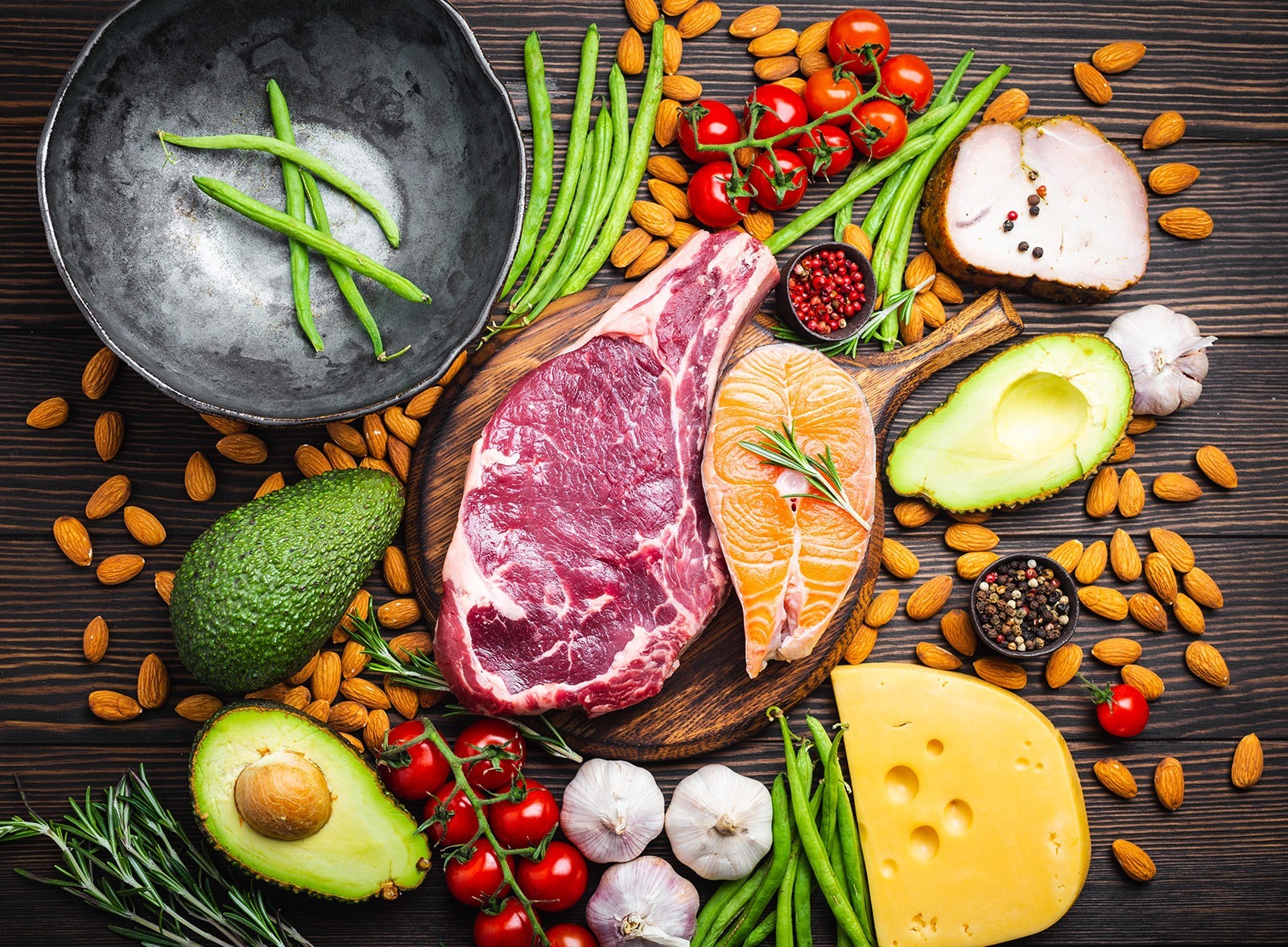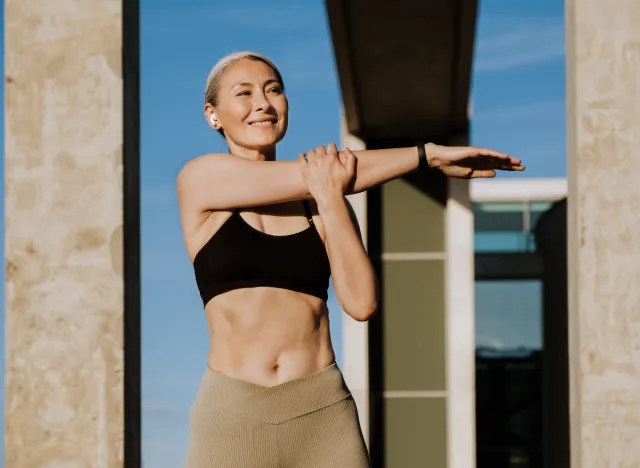Back when I was in high school, I struggled a lot with my weight.
My energy was low, and I didn’t feel comfortable in my own skin.
Like many teenagers, I turned to the internet, searching for ways to lose weight fast, hoping for a quick fix.
But what I discovered was that weight loss isn’t just about cutting calories or doing endless cardio.
It’s a combination of several factors, and it takes time.
So, if you’re reading this and want to know how to lose weight fast in 2025, let me share what I learned along the way.
Understanding weight loss can be tricky, especially with so much conflicting advice online.
But with the right approach, it’s possible to lose weight and keep it off in a healthy way.
It’s not just about crash diets or grueling workout routines – it’s about balance and consistency.
Key Factors That Affect Weight Loss
Losing weight fast depends on several key factors, and they’re all interconnected.
You can’t rely on just one.
To make it work, you need to focus on diet and nutrition, exercise, sleep, and stress management.
1. Diet and Nutrition
Let me take you back to my journey – one of the biggest mistakes I made early on was focusing only on how much I was eating rather than what I was eating.
I thought I could eat less and lose weight, but I felt weak and tired all the time.
That’s when I learned how important it is to eat the right kinds of foods.
-Choose nutrient-dense foods
Empty calories from fast food and sugary drinks made me feel full for a moment but left me craving more.
I switched to whole foods – things like fruits, veggies, lean proteins, and whole grains – and that’s when I started to see real progress.
-Portion control is key
Eating the right foods is important, but I also had to learn not to overeat, even healthy stuff.
I remember thinking that because nuts were healthy, I could eat them all day.
But overeating any food, even the good ones, can slow down your progress.
Also Read: Lemon Balm for Weight Loss
-Protein keeps you full
One of the best tips I learned was to up my protein intake.
Chicken, beans, and eggs became a big part of my meals, and I noticed that I wasn’t feeling hungry all the time.
Protein helped me build muscle and kept my metabolism going strong.
-Avoiding hidden sugars and unhealthy fats
Many processed foods are loaded with sugars and unhealthy fats that aren’t obvious at first.
Checking food labels helped me avoid these sneaky calories.

2. Exercise and Physical Activity
When I first started, I thought the only way to lose weight was by doing lots of cardio.
I would spend hours on the treadmill, but after a few weeks, I hit a plateau.
That’s when I learned that exercise is about more than just burning calories; it’s about doing the right kinds of activities.
-Cardio isn’t everything
Don’t get me wrong, cardio is great, but it’s not the only answer.
Adding strength training helped me build muscle, and the more muscle I built, the more calories I burned – even when I wasn’t working out.
-Find something you love
One thing that helped me stay active was finding an exercise I enjoyed.
I didn’t love running, so I tried different things – swimming, basketball, even dance.
Once I found what I loved, staying active became fun instead of a chore.
-Consistency matters
It doesn’t help to work out like crazy for a week and then do nothing the next.
I learned that 30 minutes of activity every day was much better than pushing myself too hard and burning out.
Also Read: Ozempic for Weight Loss
3. Sleep and Stress Management
Here’s something I didn’t realize until later – sleep and stress play a huge role in weight loss.
In my early attempts, I was staying up late, stressed out from schoolwork, and wondering why I wasn’t seeing results.
-Sleep helps your body recover
When you don’t get enough sleep, your body doesn’t have the chance to recover properly.
Lack of sleep messes with your hunger hormones, making you feel hungrier than you actually are.
-Stress can sabotage your progress
High levels of stress release a hormone called cortisol, which can lead to weight gain.
I had to learn how to manage stress by taking breaks, doing deep breathing exercises, and finding activities that helped me relax.

Fastest Ways to Lose Weight
Once I understood the basics, I wanted to find the fastest ways to lose weight without putting my health at risk.
These are some of the methods that worked for me and continue to be popular in 2025.
Also Read: Mounjaro for Weight Loss
1. Intermittent Fasting
At one point, I heard about intermittent fasting (IF) and decided to give it a try.
This method involves cycling between eating and fasting periods.
I followed the 16/8 approach, where I ate all my meals within an 8-hour window and fasted for the remaining 16 hours.
How it helped me: Fasting allowed my body to burn fat more efficiently, and I found myself eating more mindfully. During my eating window, I focused on nutritious, balanced meals.
What I learned: This approach isn’t about starving yourself. It’s about giving your body a break from constantly digesting food. But remember, IF isn’t for everyone, and you need to listen to your body.
2. High-Protein, Low-Carb Diets
Another strategy that worked well for me was reducing my carbohydrate intake and focusing on high-protein meals.
I didn’t completely eliminate carbs, but I focused on cutting out refined sugars and processed foods, which helped me lose weight faster.
Why it worked: Cutting back on carbs lowered my insulin levels, which helped my body burn fat instead of storing it. At the same time, the protein kept me full, so I didn’t feel like I was missing out.
A balanced approach: I learned that I still needed healthy carbs like sweet potatoes and whole grains for energy, especially when exercising.
Also Read: Berberine for Weight Loss
3. HIIT (High-Intensity Interval Training) for Quick Results
When I needed quick results, I switched to High-Intensity Interval Training (HIIT).
HIIT involves short bursts of intense exercise followed by brief rest periods.
It’s tough, but it’s super effective for burning calories in a short amount of time.
How it worked for me: I started doing 20-minute HIIT workouts that combined sprinting with bodyweight exercises. The results were quick because these sessions boost your metabolism and continue to burn calories even after the workout.
The key is intensity: HIIT is about pushing yourself hard during those short bursts, but it’s important to also listen to your body and not overdo it.
4. Hydration in Weight Loss
One of the easiest but most effective changes I made was increasing my water intake.
It sounds simple, but drinking water was a game changer.
How it helped me: Drinking water before meals kept me from overeating. Sometimes, when I thought I was hungry, I was really just thirsty.
Stay hydrated: I made it a habit to drink at least eight glasses of water a day, and more if I was active. Staying hydrated helped my body function better, from digestion to energy levels.
Also Read: Zepbound for Weight Loss
Top 4 Weight Loss Diets
1. Mediterranean Diet
-Pros:
The Mediterranean diet emphasizes a wide variety of foods, including fresh fruits and vegetables, whole grains, legumes, nuts, and healthy fats such as olive oil.
– This diet is well-known for its heart health benefits and has been linked to a reduced risk of chronic diseases.
– Additionally, it promotes a balanced approach to eating, making it easier for individuals to adhere to over the long term.
– The Mediterranean lifestyle also encourages social eating and physical activity, which can enhance overall well-being.
– Cons:
While it is generally effective for improving health markers, weight loss may be slower compared to more restrictive diets.
– Some individuals may find it challenging to limit processed foods and sugars when transitioning to this way of eating.
2. DASH Diet (Dietary Approaches to Stop Hypertension)
– Pros:
The DASH diet was specifically designed to help reduce high blood pressure and promote heart health.
– It encourages a balanced intake of nutrients by focusing on fruits, vegetables, whole grains, and lean proteins.
– The diet also emphasizes reducing sodium intake, which can lead to significant health improvements for those with hypertension.
– Furthermore, it promotes sustainable eating habits that can be maintained over time.
– Cons:
One potential drawback is that the DASH diet is not specifically tailored for rapid weight loss.
– Individuals seeking quick results may feel frustrated by the slower pace of weight loss associated with this diet.
Also Read: Wegovy for Weight Loss
3. Vegan Diet
– Pros:
A vegan diet is entirely plant-based and has been shown to offer numerous health benefits.
– It can help reduce the risk of chronic diseases such as heart disease, diabetes, and certain cancers.
– Additionally, a vegan diet is often lower in calories and saturated fats compared to omnivorous diets.
– Many people also choose this diet for ethical reasons related to animal welfare and environmental sustainability.
– Cons:
However, a vegan diet requires careful planning to ensure adequate intake of essential nutrients like protein, vitamin B12, iron, and omega-3 fatty acids.
– Without proper planning, individuals may face nutritional deficiencies over time.
4. Keto Diet
– Pros:
The keto diet focuses on high-fat, low-carbohydrate intake to induce ketosis in the body.
– In this state, the body burns fat for energy instead of carbohydrates, which can lead to significant weight loss for some individuals.
– Many people report increased satiety due to higher fat intake, which can help reduce overall calorie consumption.
– Additionally, some studies suggest potential benefits for certain neurological conditions.

– Cons:
Despite its effectiveness for some, the keto diet can be difficult to maintain long-term due to its restrictive nature regarding carbohydrate intake.
– Some individuals experience low energy levels or “keto flu” during the initial adaptation phase.




